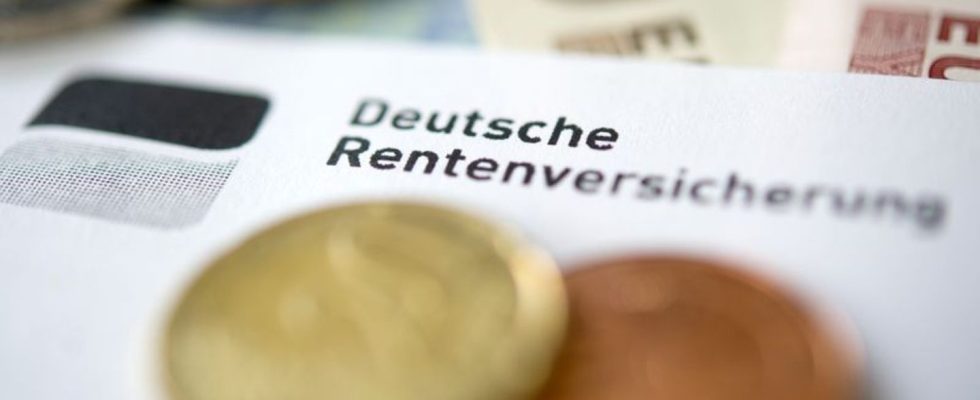The government wants to invest billions in the stock market for pensions for the first time. The income will later be used to stabilize the contributions. But there has been some strong criticism in advance.
The federal government wants to use a reform to stabilize pension levels and slow down the expected increase in pension contributions. Among other things, the financing should be put on an additional footing. Labor Minister Hubertus Heil (SPD) and Finance Minister Christian Lindner (FDP) announced in Berlin that the federal government will invest billions in the capital market and use the proceeds to pay subsidies to pension insurance from the mid-2030s.
Everyone should be able to rely on the statutory pension, emphasized Heil. Without the reform, the pension level would be decoupled from wage developments from 2027. This means that pensioners will become poorer compared to the working population. “We will prevent this by securing pension levels,” emphasized Heil.
Lindner explained that building up a capital stock of around 200 billion euros would buffer the increase in pension contributions expected due to the aging population. “For over a century, the capital market’s opportunities in statutory pension insurance have been left behind,” said the FDP leader. “Now we use them.”
Even before the plans were announced by the two federal ministers, there was clear criticism of the billion-dollar capital stock planned for pension insurance on the stock market. Social associations criticized the plans as speculative and inadequate. The economist Bernd Raffelhüschen said that loan-financed savings in stocks did not generate sufficient returns. The Bundestag member Sahra Wagenknecht called for a referendum on pensions in Germany.
Ten billion a year from the capital stock for pensions
At least 200 billion euros should be built up by the mid-2030s. As the German Press Agency learned in advance from government circles, an average of ten billion will then flow from the proceeds annually as a subsidy to the statutory pension insurance. The aim of this income is to prevent the pension contribution rate from rising too sharply. Because if more and more so-called baby boomers retire, contributions are likely to rise significantly – especially if the pension level is to be kept stable.
The president of the social association VdK, Verena Bentele, told the dpa: “An investment in stocks only pays off, if at all, after about 30 years.” This is far too late to stabilize the pension system. “The bottleneck will arise now, in the next few years, when the baby boomer generation leaves the workforce,” said Bentele. “We don’t need speculative investments on the stock market that require billions of euros in long-term debt and burden future generations.”
“We are skeptical about that”
The Social Association of Germany (SoVD) was also not very enthusiastic about the so-called generation capital. “The statutory pension must be fair for all generations because it affects everyone,” said SoVD board chairwoman Michaela Engelmeier to the dpa. “But we are skeptical about whether this will be possible with the somewhat misleading “generational capital”. We fear that this will only be an introduction to stock pensions. That must not happen.”
In fact, the planned capital stock has little to do with the stock pension that the FDP promoted in the 2021 election campaign. Contribution money is not earmarked for this. At that time, the FDP wanted two percent of income to be put into funded pension provision.
High expectations of the pension package
At the same time, Engelmeier said she had “high expectations” of the pension package. “Because people need planning security.” Therefore, the pension level must be fixed at 48 percent in the very long term. However, it will only be truly sustainable and poverty-proof when the level is raised to 53 percent.
So far, the law states that the pension level will not fall below 48 percent until 2025. According to the current pension insurance report, the security level threatens to fall to 45.0 percent by 2037 without new legal intervention. It tells you what percentage of the current average wage someone who has always worked and paid contributions at the average wage for exactly 45 years receives as a pension. When pension levels fall, pensions rise less than wages.
“Social policy low point for the SPD”
Sahra Wagenknecht violently attacked the government about the planned generational capital. “The stock pension is a casino pension. Because of the lack of planning in pension policy, the traffic lights are playing games with citizens’ old-age security,” said Wagenknecht. “The fact that Hubertus Heil is implementing the FDP’s pet project with the stock pension is a socio-political low point for the SPD.” The chairwoman of the new alliance, Sahra Wagenknecht, called for a referendum on pensions in Germany, similar to that in Switzerland, where a majority voted on Sunday in favor of a 13th pension payment per year.
Bentele and Engelmeier called for additional population groups to be integrated into statutory pension insurance. “The pension provision in Germany will only be truly fair when everyone is involved” – including civil servants, parliamentarians and the self-employed, said Engelmeier. Bentele made similar comments. “The share of tax subsidies for pension insurance in the federal budget must under no circumstances decrease in the future,” she said. Because it would finance many tasks for society as a whole, such as widows’ and mothers’ pensions.
Economist misses sustainability
The economist Bernd Raffelhüschen criticized that the reform plans could not secure pensions in the long term. “Heil is planning to square the circle: leaving the pension level at 48 percent and not increasing the retirement age is economic madness and would be a six in math,” said the Freiburg professor of finance to the news portal “ThePioneer”. The economist also criticized generational capital. A loan-financed savings in stocks cannot generate any significant return due to the debt burden – “maybe one percent and that is nowhere near enough to support the pension system.”

